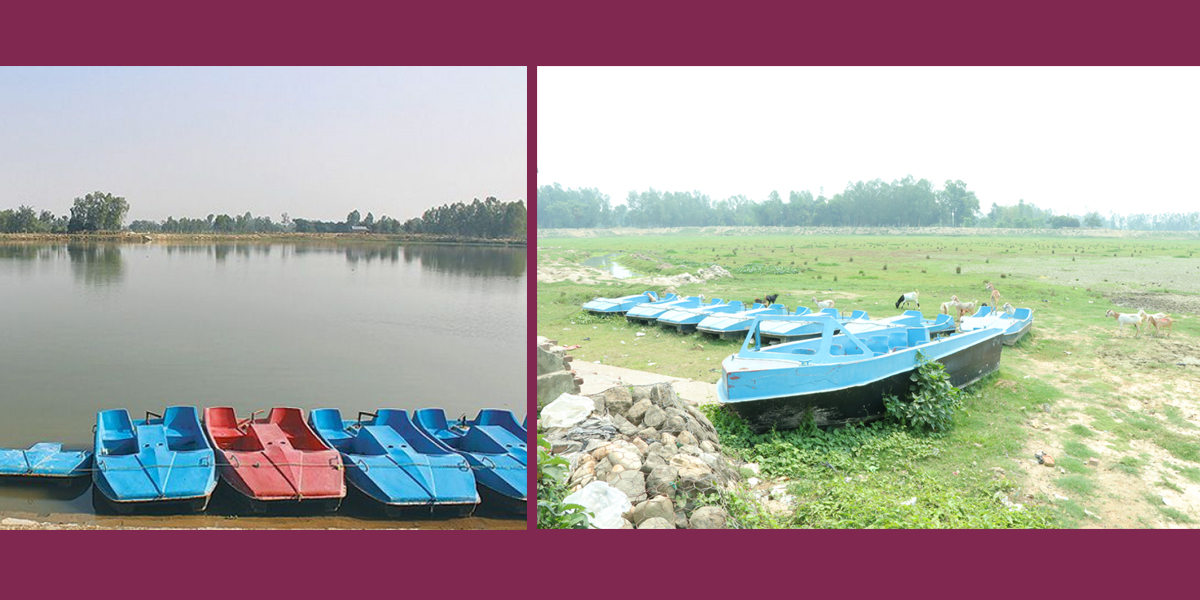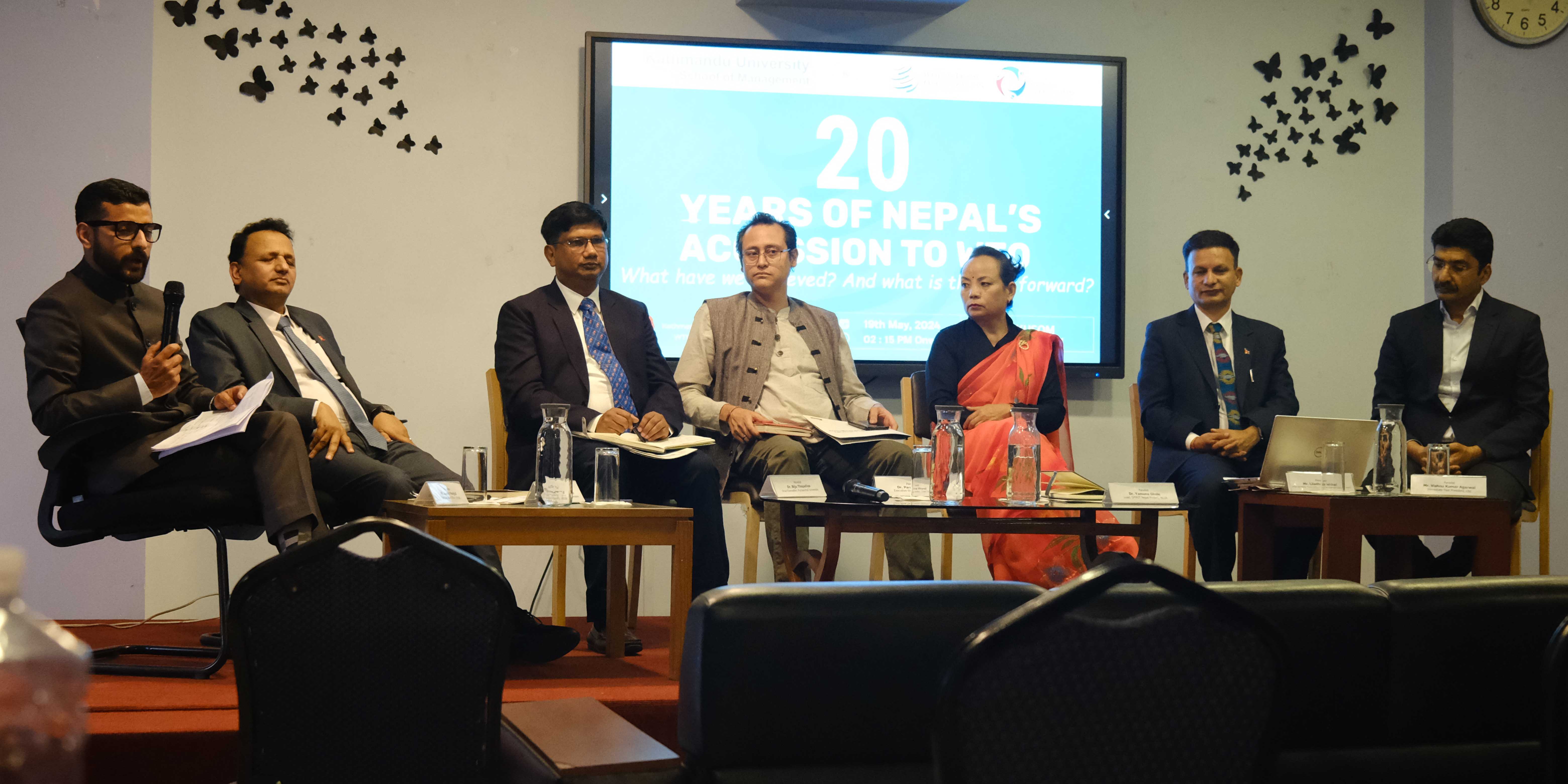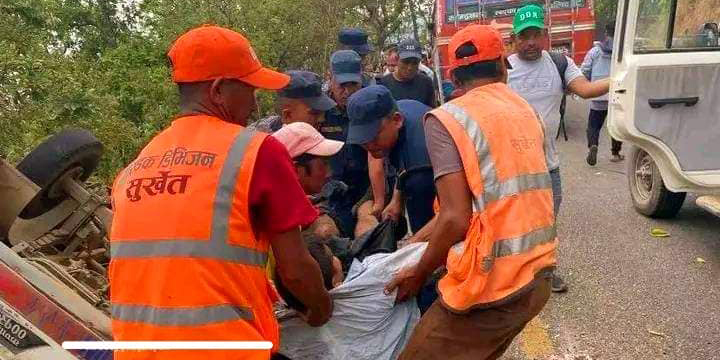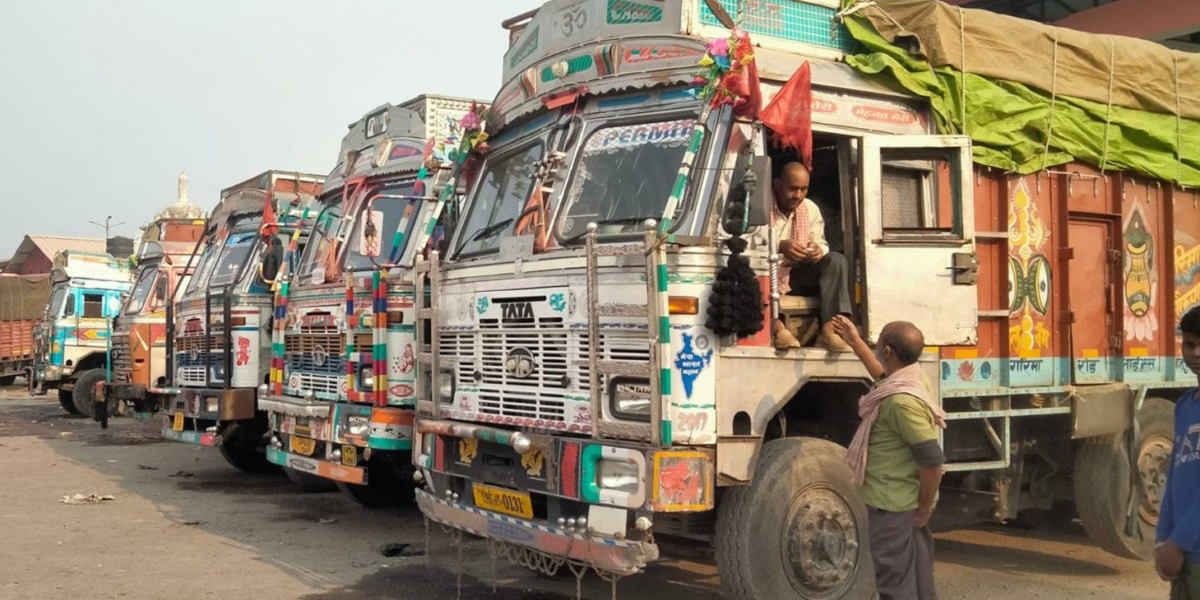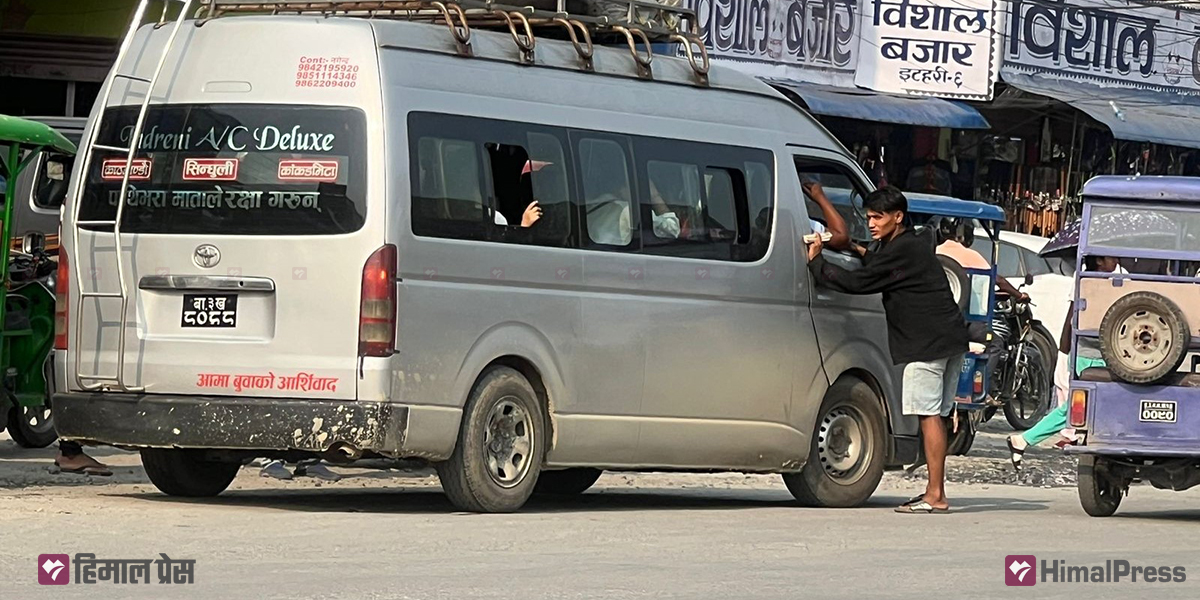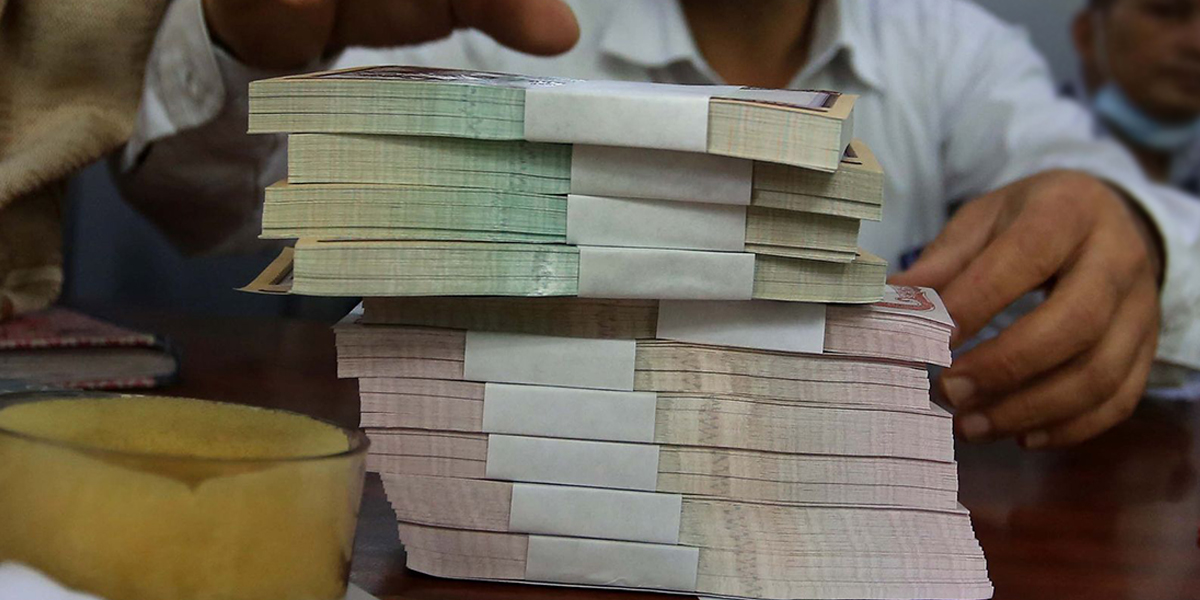
KATHMANDU: Industrialists and businessmen have been protesting against banks and financial institutions since last November, demanding a reduction in interest rates. They argue that the high interest rates are making it difficult to service loans and run their businesses.
Moreover, there has been a sharp increase in the number of people being blacklisted for defaulting on loans. In the first nine months of the current fiscal year, the number of blacklisted individuals reached 17,258, compared to 12,931 in the previous fiscal year. This number has been steadily rising over the past four years.
Between 2015/16 and 2019/20, only 3,910 individuals were blacklisted. However, in the year 2020/21 alone, the number of people blacklisted increased by 3,201.
Since the start of the pandemic, the number of blacklisted individuals has surged to 34,979. Experts warn that the list of people and organizations unable to pay their debts within a year is increasing rapidly, which is a warning sign for the economy.
Former banker Parshuram Kunwar Chhetri said that the rising number of loan defaulters indicates that the country’s economy is not moving in the right direction. “The reduction in demand witnessed in the market during the COVID pandemic is still persisting. The concerned government agencies should take notice of this and make policy decisions to stimulate the economy,” he added.
Kunwar cautioned that although this may not create immediate problems, it does not augur well for the economy in the long term.
As the COVID pandemic hit, the central bank introduced various policies and granted concessions to borrowers. However, as the grace period ended, the number of people failing to repay their loans is rising.
In recent months, there have been attacks against banks, with those behind the movement spreading false information that they were being blacklisted due to the banks’ actions and that protesting can bring down interest rates.
Experts say that individuals and organizations with grievances should engage in discussions with the central bank instead of taking to the street. “There is no benefit to any party by protesting against financial institutions in this way,” said Chhetri.
Chhetri’s argument is valid since any campaign that spreads mistrust in banks and financial institutions can create problems for the entire economy. Taking matters to the streets instead of discussing them with relevant agencies can undermine depositors’ trust in financial institutions. Such activities pose risks not only to banks and financial institutions but also to millions of depositors.
Experts say that individuals and organizations with grievances should engage in discussions with the central bank instead of taking to the street.
Santosh Koirala, CEO of Machhapuchhre Bank, said people should be sensitive toward the banking sector as it is the custodian of the public money. “What would happen if depositors refused to make deposits demanding higher interest rates?” he questioned. He added that no one should engage in activities that can negatively impact the country’s economic system.
According to Nepal Rastra Bank’s data until mid-January, the total assets of banks and financial institutions in the first half of the current fiscal year reached Rs. 6.89 trillion. Total capital of banks is only Rs 675.91 billion. The remaining Rs. 5.36 trillion is the money of the general public and different organizations.
According to Dr Gunakar Bhatta, spokesperson for Nepal Rastra Bank (NRB), it is pointless to protest against banks and financial institutions as the blacklisting is a result of borrowing individuals or institutions failing to repay their loans. “The central bank had provided various facilities during the pandemic when the environment was not conducive. Now that the situation has returned to normalcy, it is wrong to demand such facilities now,” he added.
Dr Bhatta also added that there is no alternative to repaying loans and that everyone must take responsibility for their borrowing.
How safe are Nepali banks?
The recent collapse of two banks in the US has led some to wonder whether their money kept in banks is safe. However, the reasons for the collapse of US banks were different from the situation in Nepal. US banks collapsed due to massive requests for withdrawal of deposits and the decline in the value of its investment holdings. In contrast, Nepali banks hold a large volume of government bonds whose value generally do not fall. Additionally, the number of individual depositors in Nepal is greater than that of institutional depositors. The state-owned Employees’ Provident Fund (EPF) is the largest institutional depositor in Nepali banks, and it tends not to withdraw even in the face of problems.
EPF alone has deposited Rs 450 billion in different banks and financial institutions in Nepal.
 The failure of saving and credit cooperatives with capital in the range of Rs 50-70 million has caused a lot of concern. If banks with capital worth multiple billions were to fail, the impact would be much greater. Therefore, experts warn that when a bank collapses, it not only affects the related bank but also the industry, trade, and other professions and businesses, leading to systemic problems in the national economy.
The failure of saving and credit cooperatives with capital in the range of Rs 50-70 million has caused a lot of concern. If banks with capital worth multiple billions were to fail, the impact would be much greater. Therefore, experts warn that when a bank collapses, it not only affects the related bank but also the industry, trade, and other professions and businesses, leading to systemic problems in the national economy.
“Our banks are safe. There is no reason to believe they are about to collapse,” said Santosh Koirala, CEO of Machhapuchhre Bank Ltd. “However, if there were to be a problem, it would be a danger not only for the bank but for the country as a whole.”
Former Finance Secretary Rameshwar Khanal also agrees that Nepali banks are safe and that the rumors being spread will have no effect. “Our banks hold government bonds worth over Rs 900 billion. Small protests and rumors do not matter,” he said. “Since the price of government bonds is unlikely to fall, our banks and financial institutions are safe, and there is no need to panic.”
But it’s not that banks haven’t failed in Nepal. We have examples of financial institutions like Nepal Development Bank, Gorkha Development Bank, and United Development Bank collapsing. The number of banks that have been merged with others due to crises is also not insignificant.
Recently, problems have started to appear in savings and credit cooperatives. It is natural for depositors to panic and make a beeline to withdraw their deposits. Nepal Bangladesh Bank saw a huge number of people coming to withdraw their deposits some years ago just because of some rumors.
Now the question arises: How safe are our deposits in banks? How are depositors protected when banks fail?
According to the central bank, deposited money in Nepali banks is insured through deposit guarantee schemes. Banks have insured deposits of up to Rs 500,000, and they have been paying premiums to insurance companies for this coverage.
NRB Spokesperson Dr Bhatta reassured the public that banking transactions can be done with confidence, as there are strong regulatory bodies, banks, and a deposit protection mechanism in place. “Small protests currently being seen will not have any impact,” he reiterated.
Overall, banks and financial institutions play a crucial role in safeguarding deposits and providing loans to expand businesses. Without them, it would not be possible to facilitate economic transactions, monetize the economy, or maintain the economic balance of the country. As a result, the banking industry has a direct relationship with the national economy.
Without banks, it would not be possible to facilitate economic transactions, monetize the economy, or maintain the economic balance of the country.
Furthermore, the importance of banks is further highlighted by their involvement in the distribution of state-provided funds, such as social security allowance and natural calamity relief, through bank accounts. Banks also promote financial transparency and good governance by controlling and discouraging financial crimes, such as money laundering, corruption, and black money, and supporting citizens in joining the tax system.
Banks also make significant contributions to financial access and financial inclusion. With their networks expanding to all 752 local units, they have facilitated financial transactions even in rural areas. The contribution of 125 banks and financial institutions, with their more than 11,000 branches, to financial access, business expansion, loan mobilization, and wealth security is unparalleled.
“The importance of banks cannot be compared with any other sectors. We would still be in the stone age if it were not for the banks,” Chhetri added.


